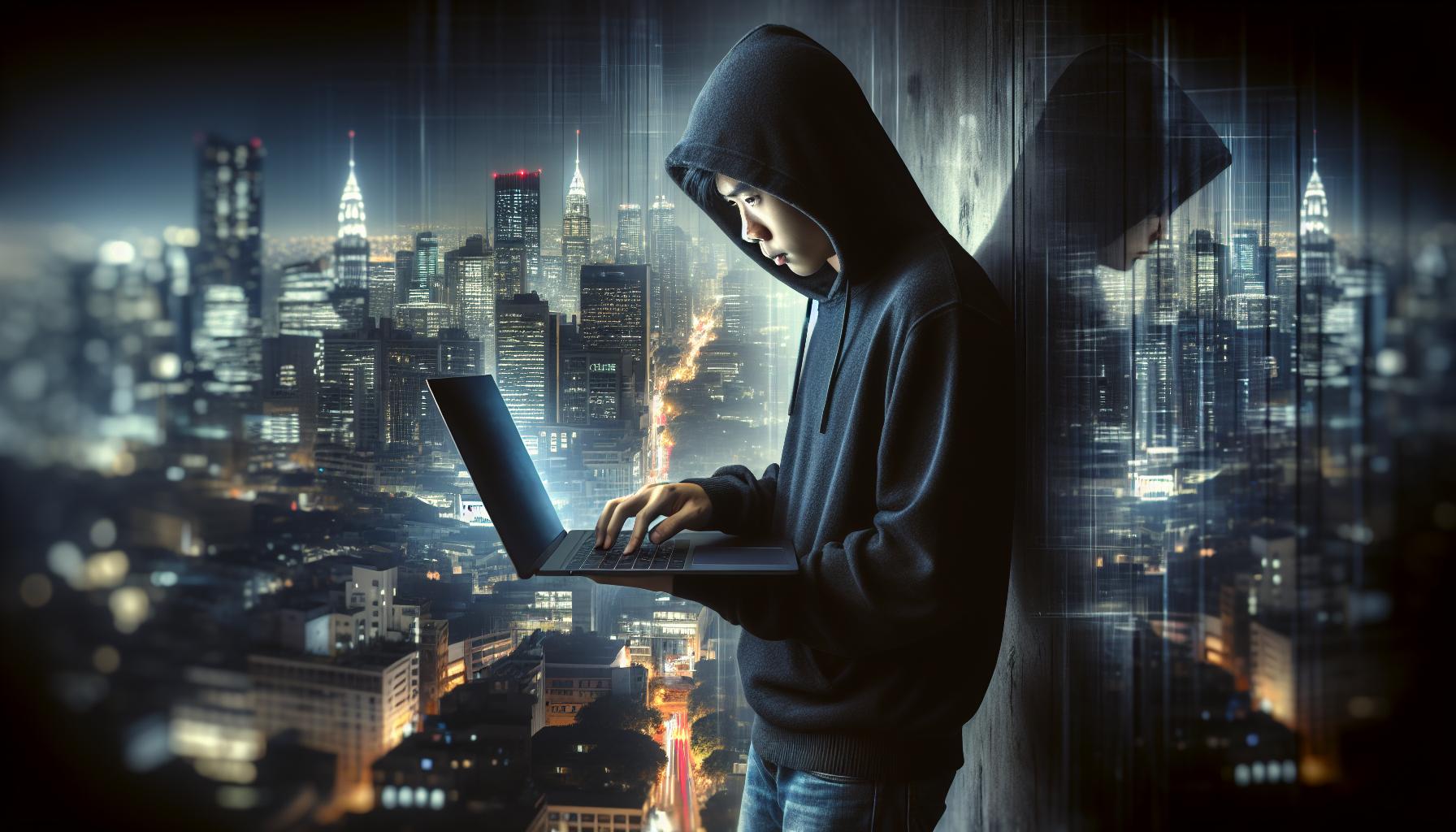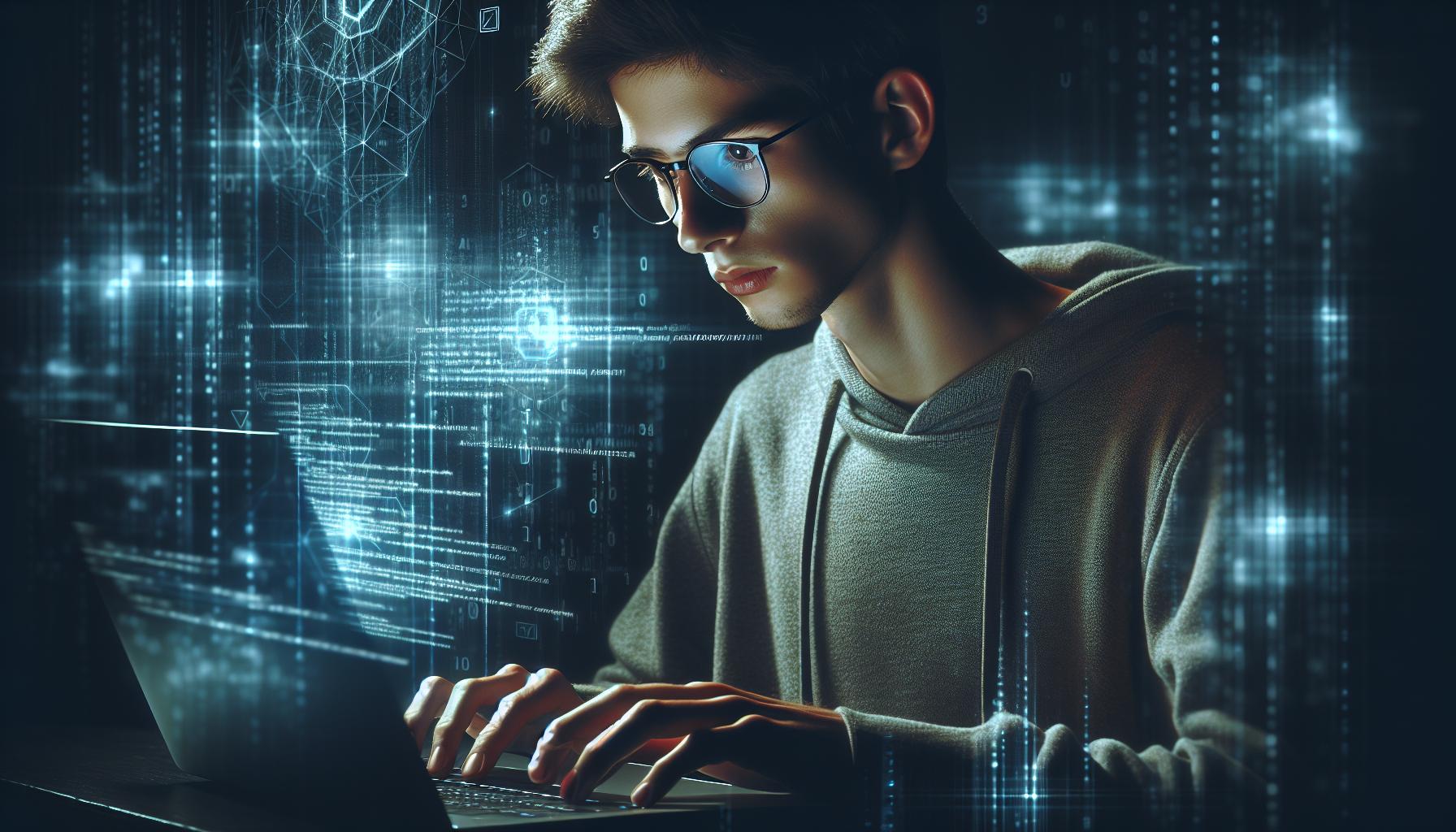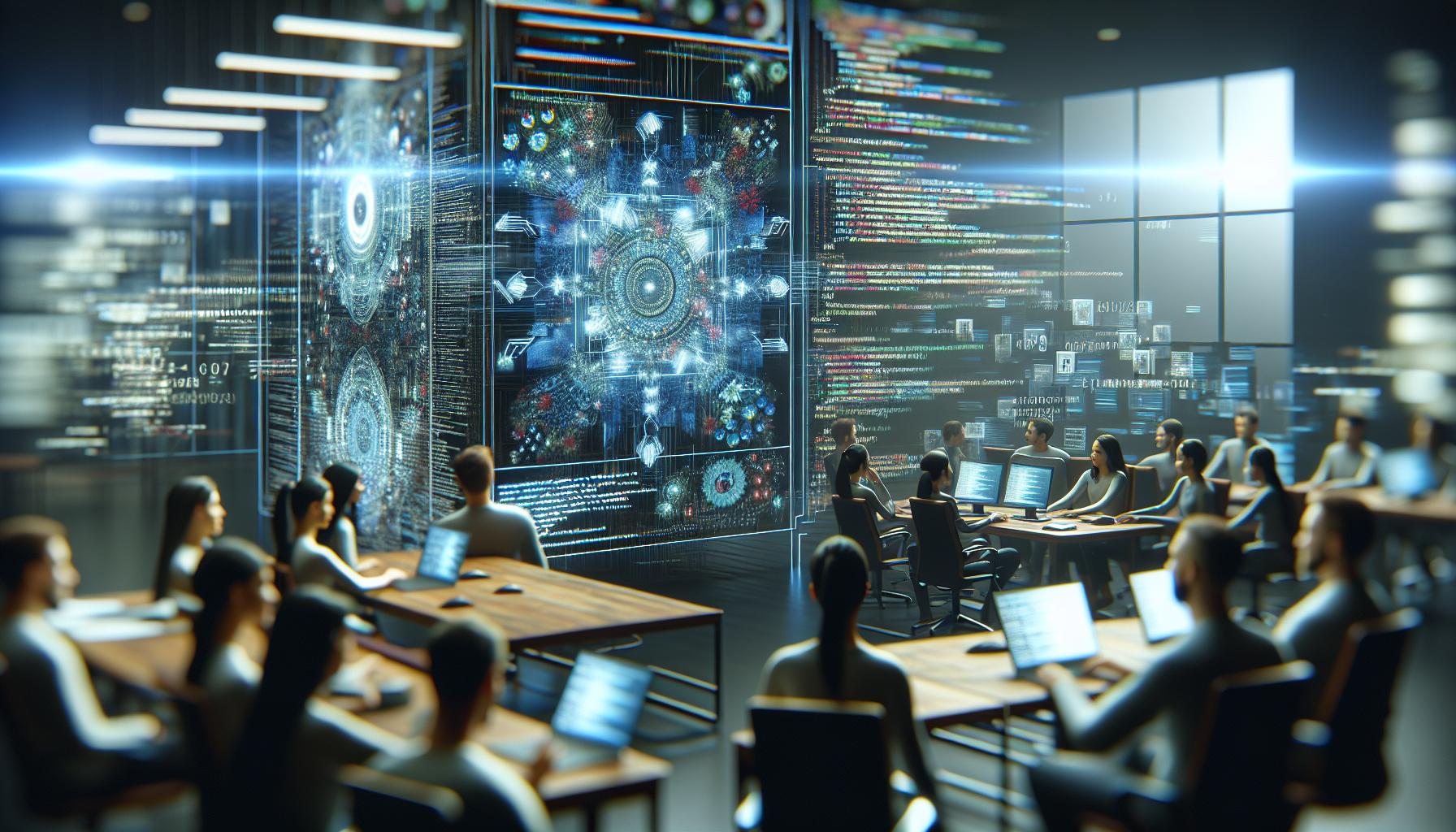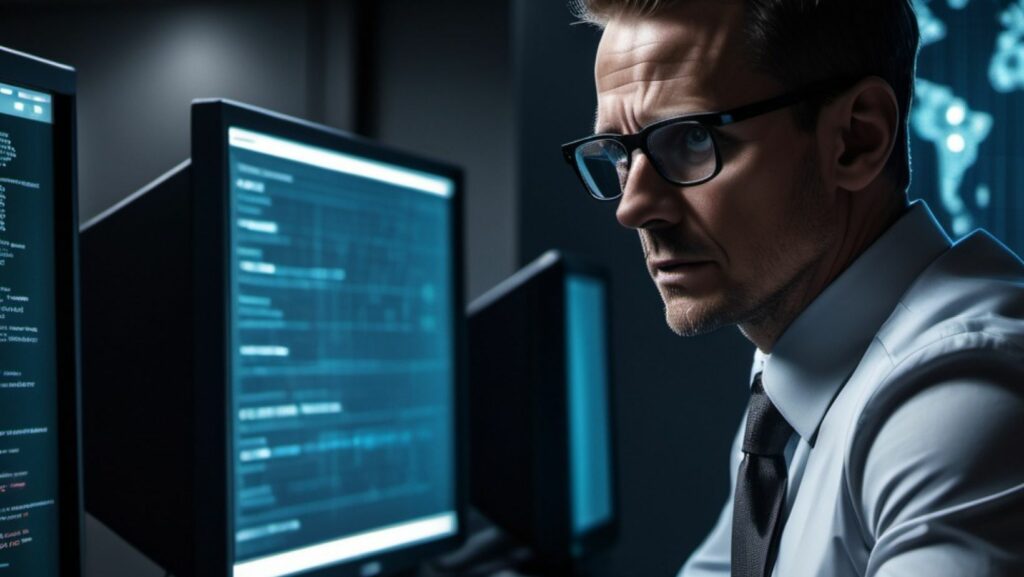In a world where digital threats loom large, cybersecurity movies have carved out a niche, blending suspense with technological intrigue. As someone who’s always been fascinated by the intersection of technology and storytelling, I find these films offer a unique lens into the complexities of our digital age. They don’t just entertain; they educate and provoke thought, highlighting the ever-evolving dance between hackers and protectors.
From the adrenaline-pumping thrillers to the more cerebral narratives, each cybersecurity movie brings its own flavor to the table. They explore themes of privacy, identity, and the ethical dilemmas faced by those who navigate the cyber realm. With technology becoming an integral part of our lives, these films resonate more than ever, reflecting both current realities and future possibilities. As I delve into this genre, I invite you to join me in exploring how these movies capture the essence of cybersecurity and its impact on our world.
Key Takeaways
- Blending Entertainment and Education: Cybersecurity movies offer a unique fusion of suspenseful narratives with educational insights into digital threats and technological advancements.
- Diverse Themes: These films investigate critical themes like privacy, identity, and ethical dilemmas, mirroring real-world cybersecurity challenges.
- Evolution of the Genre: From classics like “WarGames” to modern thrillers like “The Matrix,” cybersecurity movies reflect societal fears and technological growth over time.
- Realism vs. Fiction: While filmmakers often enhance drama for engagement, accurate depictions of hacking and cyber activities provide educational value and authenticity.
- Cultural Influence: Cybersecurity movies shape public perceptions by introducing viewers to digital threats, inspiring discussions on privacy and protection, and fostering an interest in technology.
Cybersecurity Movies
Cybersecurity movies captivate audiences through their thrilling narratives and detailed depictions of digital battles. These films often portray hackers breaching sophisticated systems, contrasting radically with protagonists who work tirelessly to counteract them. Viewers encounter the thematic threads of privacy and identity woven into high-stakes storytelling, often set against a backdrop of technological advancements.
Some examples include “Hackers” (1995), which delves into the underground world of young digital prodigies, and “The Matrix” (1999), where reality intertwines with computer-simulated environments. Additionally, “WarGames” (1983) offers a cautionary tale about the real-world impact of virtual actions.
In exploring these narratives, cybersecurity movies not only reflect societal fears about data breaches and privacy loss but also depict emerging technologies and ethical dilemmas. By engaging with these films, I get to glimpse the tension between innovation and security, making them essential viewing for those interested in technology’s evolving role in society.
Popular Cybersecurity Movies

Cybersecurity movies capture the essence of digital intrigue and innovation. Iconic films in this genre span both classic and modern eras.
Classic Cybersecurity Films
Several classic films have shaped the cybersecurity genre. “WarGames” (1983) features a young hacker who accidentally accesses a military supercomputer, highlighting Cold War fears. “Hackers” (1995) portrays teenage hackers embroiled in corporate espionage, showcasing a youthful digital rebellion era. “Sneakers” (1992) blends humor and suspense, focusing on a team uncovering an encryption-breaking device, reflecting early anxieties about digital security. These films laid the groundwork for exploring complex themes in technology and privacy.
Modern Cybersecurity Thrillers
Modern cybersecurity thrillers delve into current digital challenges. “The Matrix” (1999) explores a simulated reality controlled by AI, blending philosophical questions with digital warfare. “Blackhat” (2015) features a hacker recruited to combat cybercrime, focusing on international cyber threats. Meanwhile, “Who Am I” (2014) portrays a young hacker group gaining notoriety, reflecting global concerns about digital anonymity and power. These films address contemporary issues in cybersecurity, reflecting technological advancements and ethical dilemmas.
Themes and Concepts

Cybersecurity movies delve into critical themes that mirror real-world issues. These films engage viewers with gripping elements rooted in digital conflicts and data security.
Hacking and Cyber Attacks
Hacking and cyber attacks remain central motifs in cybersecurity films, providing a backdrop for intense drama. These movies showcase hackers using their skills to breach highly secure systems, often revealing vulnerabilities in digital infrastructure. “WarGames” (1983) exemplifies this theme by depicting a young hacker inadvertently accessing a military supercomputer, leading to a potential nuclear crisis. Films like “Hackers” (1995) further explore this narrative, focusing on the ethical boundaries crossed in pursuit of digital information—a reflection of the increasing frequency and sophistication of real-life cyber threats.
Privacy and Data Protection
Privacy and data protection are cornerstone themes in these films, reflecting contemporary concerns over personal information security. Characters often grapple with the implications of data misuse, as seen in “The Net” (1995), where a software engineer’s life is upended by identity theft. Such stories emphasize the tensions between technological advancement and individual privacy. “Enemy of the State” (1998) highlights the invasive power of surveillance, questioning the balance between security measures and personal freedom. Through these narratives, movies provoke thought on the importance of safeguarding data amidst ever-present surveillance technologies.
Realism vs. Fiction

Cybersecurity movies walk a fine line between technical accuracy and artistic storytelling. While they educate on digital security, they often enhance drama to captivate audiences.
Technical Accuracy
Many films in the cybersecurity genre strive for technical accuracy, grounding their narratives in real-world technology. For example, “WarGames” introduced audiences to computer hacking concepts using realistic depictions. Similarly, “Blackhat” includes accurate methodologies, like command-line interfaces, that experts recognize. These elements provide authenticity, allowing viewers to learn about cybersecurity’s complexities within an engaging plot.
Dramatic Enhancements
Filmmakers often amplify scenarios to heighten suspense and drama. Enhanced hacking sequences create excitement; for instance, “Hackers” employs visually stunning digital landscapes to depict virtual heists. Additionally, narrative urgency is elevated through time-sensitive cyber threats. Such embellishments, while exaggerated, strengthen the narrative tension and serve to engage a wider audience by making technical subjects more accessible and thrilling.
Cultural Impact of Cybersecurity Movies
Cybersecurity movies significantly shape cultural narratives around technology and influence societal attitudes towards digital security. Their depiction of cyber worlds continues to resonate with audiences, reflecting real-world concerns.
Influence on Public Perception
Viewers often derive their understanding of cybersecurity from films, which makes these movies critical in shaping public perception. By dramatizing digital threats and defenses, they enhance awareness of cybersecurity’s importance. Movies like “WarGames” (1983) and “Hackers” (1995) introduced audiences to the concept of hacking long before it became part of mainstream discourse. They underscore the potential threats and ethical issues inherent in digital spaces. When movies portray sophisticated hacking scenarios, they engage viewers and prompt discussions on privacy breaches and cyber threats, fostering a more informed public.
Inspirational Figures and Stories
Cybersecurity films frequently feature characters who become pivotal cultural icons, inspiring individuals interested in technology. The rebellious nature of protagonists, such as Neo in “The Matrix” (1999) and Lisbeth Salander in “The Girl with the Dragon Tattoo” (2011), highlights the allure of hacking as a form of empowerment. Their stories of battling powerful entities resonate with viewers, motivating future cybersecurity professionals to pursue paths that protect digital integrity. These narratives often blend real-life technological dilemmas with fictional drama, creating memorable heroes and underscoring the societal need for cybersecurity vigilance.

